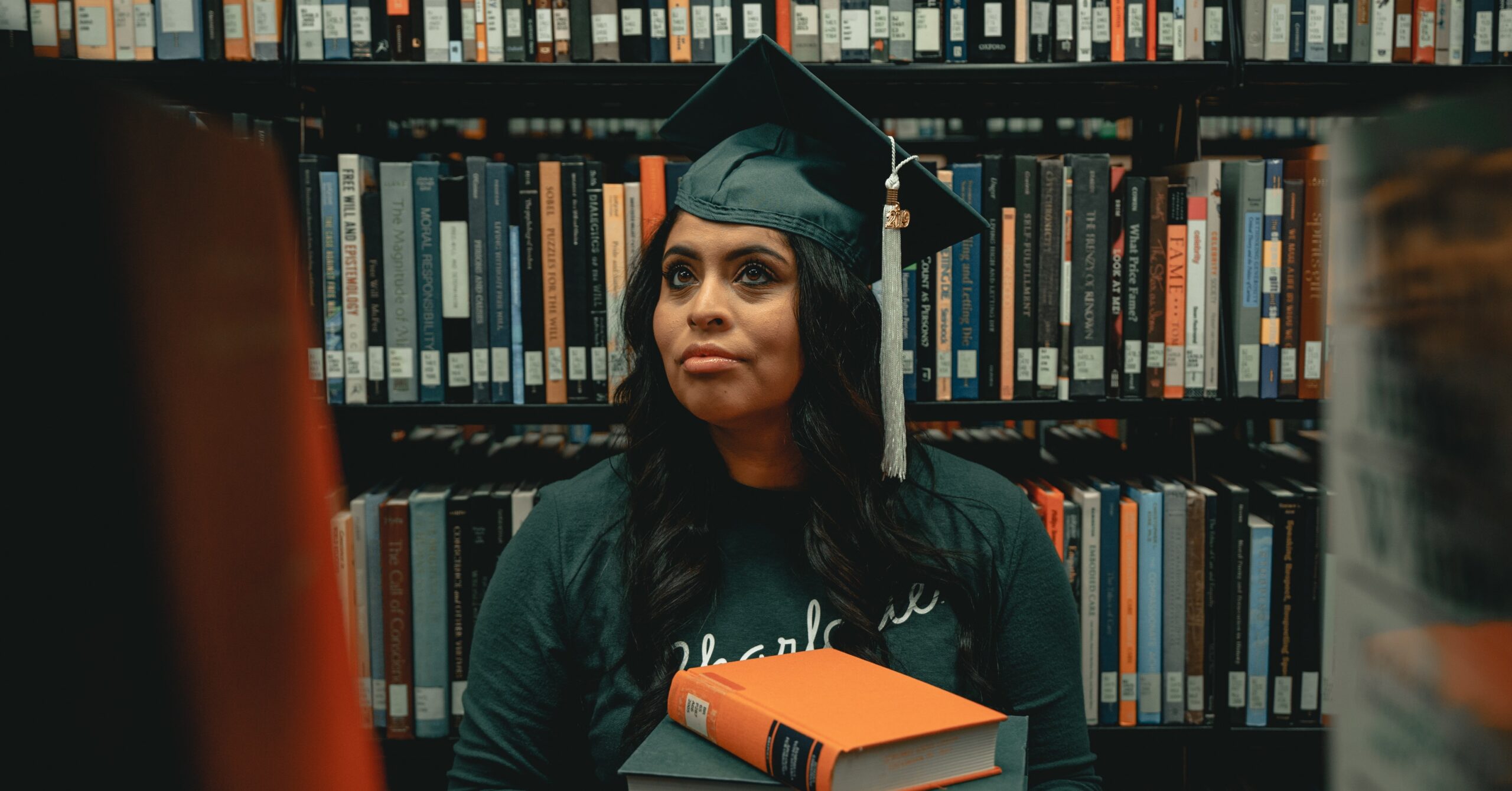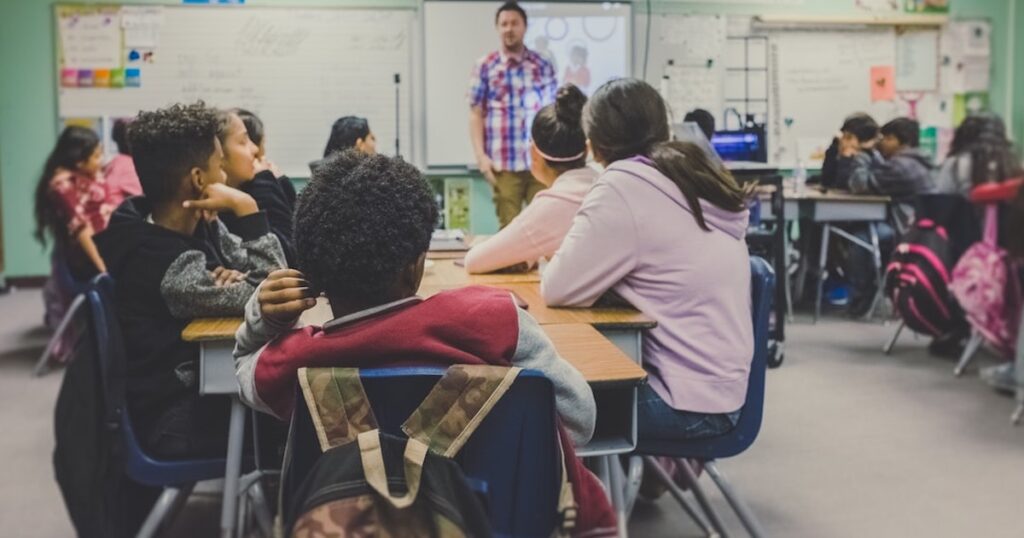
Boost Your Teacher's Salary with a Master's Degree
Even in states where a master's degree isn't required, teachers [...]

No matter where you teach, you’ll likely spend your days making lesson plans, sharing your knowledge, grading work, assessing students, and collaborating with administrators. However. how you go about these essential tasks, may depend on whether you work in a public school or a private school.
Your choice of school venues—public or private—can impact every aspect of your professional life, from how much you get paid and how secure your job is to how you teach and what your relationships with your students look like.
You may assume that private school (or independent school) teachers have a better job: they don’t have to deal with state bureaucracies or crippled education budgets, after all. Don’t be so sure, though. Private school teachers deal with many of the same pros and cons as teachers in the public school system. Some teachers find that private schools are the better fit. Others thrive in the world of public education and can’t imagine leaving it behind.
Figuring out where you belong isn’t easy—especially if you’re still pursuing your bachelor’s in education and aren’t yet sure where your priorities lie. That’s why we put together this guide for anyone considering becoming a teacher at a private school.
In this article about teaching at private schools, we explore the upsides and downsides of opting out of the public school system and cover:
You’re probably already aware that many more students attend public schools than private schools. While a quarter of all US schools are private schools, only 10 percent of children in the United States are enrolled in private elementary, middle, and high schools.
This discrepancy results from the fact that private day schools and boarding schools tend to be smaller than public schools. A private school spanning eight or even twelve grades might serve just 400 students, while a single public high school might have 3,000 students. The largest private schools in the country have 1,000 students. In contrast, the largest American public high schools have more than 8,000 students enrolled in any given year. Lower enrollments enable private schools to keep class sizes small.
The most significant differences between public schools and private schools result from private schools’ existing outside government control. Public schools are run by state and local governments and funded with tax dollars; consequently, every child—regardless of financial situation or ability—in the US has the right to public school education. What that education looks like is primarily determined by the state.
Private schools, on the other hand, operate independently of government control. They are funded by parents, donors, alumni, sponsors, and other funders. Like colleges and universities, these schools can set any admissions requirements they choose. They can also choose their own curriculum that may (or may not) meet state standards.
Requirements for teachers in private schools and public schools differ, but there’s no easy way to quantify how. State education and licensure requirements for public school teachers are usually relatively easy to find because each state’s department of education makes those requirements available (online or by request). Private schools don’t have to publish their requirements for teachers—or have any set requirements at all. Candidates for open private school teaching positions are evaluated on a case-by-case basis. Private school teachers are not even legally required to have teaching certificates. However, some private schools require teachers to meet the same education and licensure requirements as public school teachers. Some enforce even more stringent requirements.
The bottom line is that each private school is its own independent entity. Public schools are part of a district overseen by the state department of education. Teachers in public school classrooms are bound by bureaucracy and rules that can’t be bent or broken. Teachers in independent schools also work in a management structure, but they often have a lot more freedom regarding what and how they teach.
| University and Program Name | Learn More |
|
New York University:
Master of Arts in Teaching
|
|
|
Merrimack College:
Master of Education in Teacher Education
|
The answer is probably job satisfaction. Teaching in public schools can be rewarding, but it can also be frustrating. Data from the National Center for Education Statistics (NCES) shows that teachers in private schools are generally more satisfied with their careers and less stressed than public school teachers. They feel more supported and recognized by their administrators, the parents of their students, and the entire school community. They’re also able to spend more time teaching because they spend less time dealing with problematic student behavior.
It’s worth noting that both teacher groups—private and public—reported impressively high levels of satisfaction with their jobs. In response to the statement “Teachers at this school like being here; I would describe us as a satisfied group,” nearly 76 percent of public school teachers agreed, compared to almost 88 percent of private school teachers. At least 90 percent of both groups said they were “generally satisfied with being a teacher ” at their school. The groups differed more dramatically in their assessment of “the way things are run” (80 percent favorable among private school teachers, 73 percent among public school teachers) and their appraisal of student interest and preparedness.
The licensure and professional development requirements for private school teachers vary from school to school. Some independent schools require or at least prefer teachers to have a teaching license. Others are much more interested in the degrees and classroom experience candidates for open teaching positions bring to the table.
Having a master’s degree in education or a PhD can be a big plus when you’re applying to teach at private schools, though in some cases, teaching experience will be all it takes to get a foot in the door. One step you can take to ensure you’re an attractive candidate is to look at the staff bios at private schools in your area to see what kinds of qualifications teachers generally have. It’s an easy way to get a sense of what private schools are looking for.
You should consider getting a teaching degree, however, even if private schools in your area routinely hire unlicensed teachers or teachers without bachelor’s degrees in education. In one study that explored a potential private school teacher skills gap, hundreds of private school educators reported having to learn skills like classroom management, planning instruction, and other skills vital to success in the classroom while on the job. You can teach at a private school without a degree in education, but you might not feel as confident as a teacher who has studied how to teach.
Teaching at a private school generally means teaching smaller classes, dealing with fewer administrators, and having more freedom to teach the way you want to teach. Some teachers who transition from a public school into a private school find that they can get more done. Because class sizes are smaller, they can give students more individual attention and extra help when necessary. Because parents pay out of pocket for the privilege of having their students attend school, students and parents tend to be more engaged.
Teachers at private schools may not have to meet district or even state standards, and they don’t have to use district- or state-approved curricula. They can teach what they want, how they want, provided they meet the school’s standards. Be aware, however, that for each of these pros, there are cons that we’ll explore in more depth below.
Because private school tuition is often high, you might assume that teachers in private elementary schools, middle schools, and high schools are paid more than public school teachers. This may be true at particularly well-funded private schools, but it’s important to remember that private schools are businesses. When teachers are paid more, there are fewer funds to invest in facilities, extracurricular programs, and even marketing.
According to the NCES, most public school teachers earn 25 to 119 percent more than their colleagues who teach at private schools. While teacher salaries vary by school and location, it’s not uncommon for teachers at private schools to earn less than the average teacher salary. The reasons for this disparity are complex but may be because public schools ask their teachers to do more with less. Public school districts have to offer teachers bigger salary packages if they want to attract great teachers.
Given that there’s a chance you’ll earn less teaching at a private school, it makes sense to weigh the pros and cons carefully.
This can be an intensely personal decision, given how different teaching in different school settings can be. As you consider both options, think about what inspired you to become a teacher in the first place and also what your ideal career looks like.
Some people prefer public school teaching jobs because of the unparalleled diversity. Teachers can work with public school students from different cultural backgrounds and socioeconomic backgrounds. Some students may not speak English as a first language. Public school classrooms often have a mix of high achieving students and students who need extra help. If you were called to teach because you want to make a major difference in your students’ lives, you might have more opportunities to do so in public school systems where your students face a wider range of challenges each day.
On the other hand, you may also face more challenges in a public school classroom. Larger class sizes can make classroom management difficult. You may spend more time working to keep your students from disrupting lessons than you spend teaching them.
Private school teachers may not have to deal with as many behavior issues in their students. It’s unlikely that they’ll encounter students who don’t have the resources necessary to complete assignments. The day-to-day business of teaching can feel easier in a private school classroom where the expectations (and the consequences of not meeting them) are clear. Private school teachers face their own challenges, however, when it comes to things like job security and keeping paying parents happy.
You should also be aware that every school is different. There are plenty of well-funded public schools with smaller class sizes and lots of resources for teachers, and there are private schools where teachers don’t get much support from administrators or parents. Always do your research when exploring new opportunities in any setting and keep an open mind. Accepting a private school job doesn’t mean you won’t feel called back into the public school system in a few years.
This article was originally published in 2018. It has been updated to reflect the most recent data on the subject.
Questions or feedback? Email editor@noodle.com

Even in states where a master's degree isn't required, teachers [...]

As a math teacher, you may qualify for higher pay [...]

According to Zippa, salaries for school principals range from under [...]

The keys to maximizing your income as an English teacher [...]

Do music teachers make more than their fellow educators? Not [...]
Categorized as: Teaching, Education & Teaching